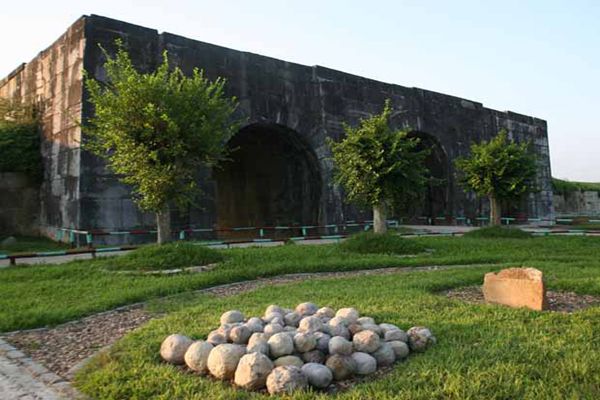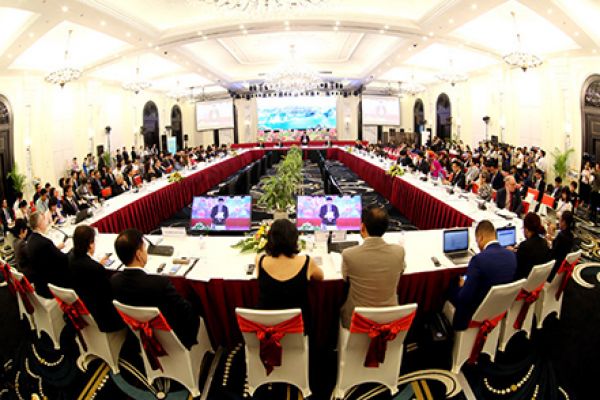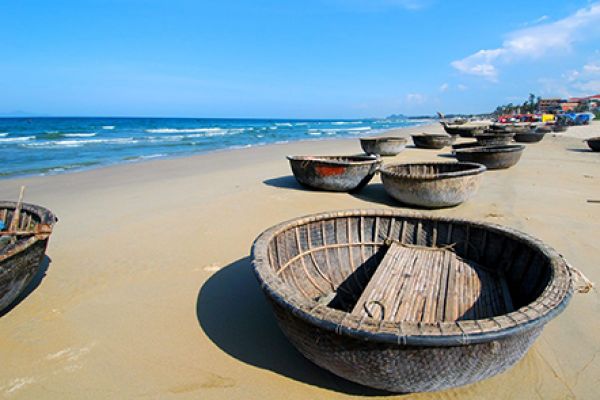Rat meat - a must for the party
During the last days of lunar December, local people in Buong village are busy preparing dried rats as a special dish to offer to their ancestors, village deities and river spirits on New Year’s Eve. Normally, after harvesting the summer-autumn rice crop, all the men, including elderly people, in the village prepare bows and arrows for rat hunting in the forest.
When visiting village chief Le Van Suu’s house, he was worried because he did not have the three dried rats as required for the ritual. He said that he had planned to spend several days hunting in the forest.
Suu said that only those who hunt for rats for the ritual show their respect for the deceased and the village deities. It is believed that using dried rats as offerings to their ancestors brings good luck to their families, so they try to prepare at least three dried rats stored in the attic of their kitchen at the beginning of the 12th lunar month.
According to Suu, the Dao go hunting for rats in the forest for their daily meals. The golden chance often comes by the end of the year when flocks of rats seek refuge inside caves to avoid the chilly weather. A hunter can kill dozens of rats each day. Taking rats back to home, the hunter boils water to strip the rats of their fur, burns them in dried straw, removes intestinal organs and stores them in the attic. Suu said that dried rats can be kept in the kitchen during the whole winter.
When a family receives special guests, the house owner takes the rats out of the attic, slice and mix them with salt and ginger. The mixture is chopped into small pieces and poured into the boiling bowl of porridge on the charcoal oven. The soup is often served hot with fresh onions and salt.
Suu took us to the 85-year-old Lo Van Phy’s house. Phy, the oldest man in Buong village, told us about the custom.
“When our ancestors moved here to settle, they encountered a lot of difficulties, including chronic hunger and consequences caused by frequent natural disasters. They trapped and ate rats as they bred like rabbits at the time. With the passage of time, rat meat gradually became a daily dish and local villagers used this kind of meat as offerings to their ancestors and deities during festivals to show their gratitude toward the rats.”
Temple worships rats
Though another villager Trieu Van Hem turns over 60 this year, he has been the village’s sorcerer for seven years. When we came to his house, he was busy preparing for the ritual on the second day of the new lunar year. His biggest worry was whether villagers could collect sufficient dried rats for the ceremony, which is very important for the Dao. He said, “As the lunar New Year is the year of the rat, I have made thorough preparations.”
He took us to a temple built deep in the middle of the village surrounded by green trees. He said that according to Dao customs, the rat temple should be located in a deserted area.
“The Dao in Tan Pheo commune has three big festivals in a year: the rain praying festival in May, the new rice festival in September and the lunar New Year Festival. Local people often offer chicken to the deities during the first two festivals and dried rats during the last one,” said Mr Hem.
At the beginning of the 12th lunar month, all the families prepare at least three dried rats for the ritual. Two of the rats are kept at home and the last is offered to the temple. At 08.00pm on New Year’s Eve, the two dried rats are placed on the ancestral altar. At midnight, the house owner, mostly male, burns incense sticks and ‘invite both ancestors and spirits to come home and enjoy rat meat’ during the Tet holiday.
According to Dao customs, no meat can replace dried rats during the ceremony on New Year’s Eve and ancestors and village spirits will only accept this kind of meat.
On the morning of the second day of the new lunar year, each family sends a representative to Mr Hem’s house for the rite, bringing with them a dried rat, a bottle of wine and a piece of incense stick.
“It is the most sacred and joyful day during the Tet holiday. All the villagers are present and pray for a new lucky year in the hope that rats will not destroy the crop,” said Mr Hem.
Dang Thi Ha, a local villager in Bung village said, “Old habits die hard. I have never and ever forgotten to place dried rats on the ancestral altar during this special occasion.”










(84-63) 3 826042 – (84-63) 3 511142
No 54 Nguyen Dinh Chieu, Ham Tien Central Mui Ne Beach Binh Thuan Vietnam
523 To Hien Thanh District 10 Ho Chi Minh City Vietnam
Ha Long Halong City Quang Ninh Vietnam
A13 Hung Thong 2 Halong City Quang Ninh Vietnam




